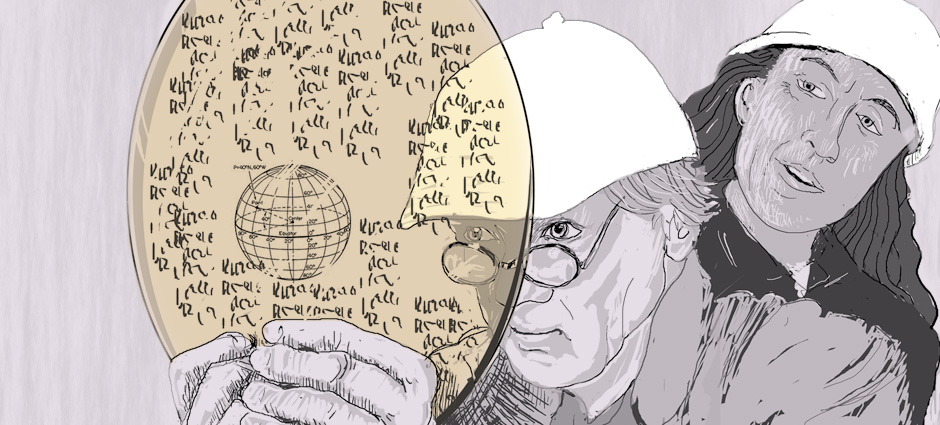Social research
Social research for the future
Creating a final repository for spent nuclear fuel not only involves hard science in, for instance, the choice of method, technological development and environmental impact assessments. Such an extensive project also affects society at large. This is why SKB funds research with a social science or humanistic focus.
Today research is being carried out on preservation of information and knowledge through generations. The question of how information about the Spent Fuel Repository can be handed down to future generations has risen for instance in the consultations that SKB has held about the Spent Fuel Repository. The Radiation Safety Authority and the municipality of Östhammar have requested SKB to present an action plan for information transfer.
In addition to its participation in a number of international partnerships and projects that focus on information survival, SKB has also given two researchers from Linnaeus University in Kalmar the task of researching into the subject ”A hundred thousand years ahead and ago – archaeology encounters the Spent Fuel Repository”. Their work took three years and was completed in 2014.
SKB has initiated another research project on preservation of information and knowledge through generations at the Centre for Theology and Religious Studies at Lund University. This project raises questions about language. How do we have to think and act to make it easy for the language we use in the information we leave behind to be understood in the future? What is needed to reconstruct a dead language and how do we describe a technology so that it can be understood even if it is no longer used and has fallen into oblivion?
A broader perspective
To broaden the perspective on the social aspects of the final repository, researchers in the social and behavioural sciences, jurisprudence and the humanities were invited to apply for funding for their own projects. These dealt with four different areas of research: socio-economic impact, decision-making processes (governance, opinion and attitudes), psycho-social impact and changes in the surrounding world.
The aim of the programme is to study the impact of the final repository project on the surrounding community and find out what the decision-making processes on such an important issue can look like. SKB also wants more knowledge and information to enable enquiries and analyses linked to the nuclear fuel project to improve the quality of the material on which decisions are based.
Today this research programme, which resulted in 18 research projects, has been completed and evaluated. Even though SKB considers that this research has helped to deepen understanding of the historical and economic aspects relating to the final disposal of nuclear waste as well as public opinion on the issue, it does not at the moment intend to fund new research programmes of the same kind.
Research & technology
